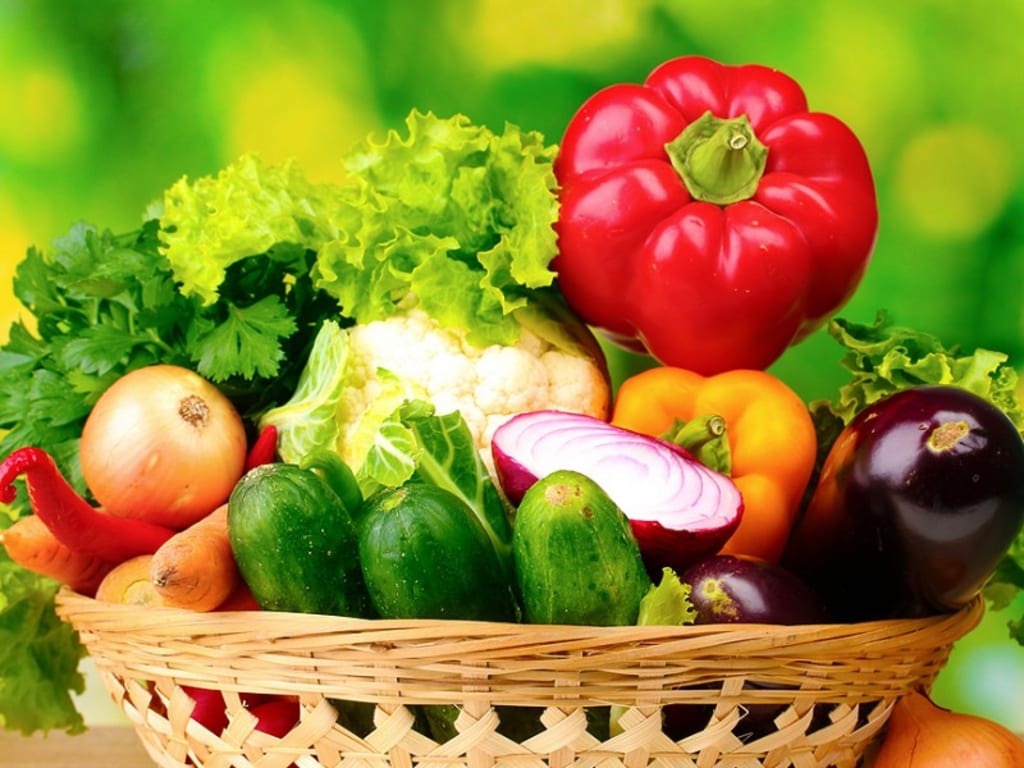Myths About Organic Farming
Organic Farming

Organic food is the buzz word of the moment. It is supposed to be healthier and taste better than conventionally grown foods. Supermarkets are increasing their range of organic foods and many people are buying theirs directly from farms, box schemes, farms shops and farmers’ markets. There are a number of principles and standards that regulate how organic food is produced, covering such things as sustainability, animal welfare, additives and pesticides. Organic foods are said to have a number of benefits both for the consumer and the environment but are these claims true?
Myth 1: Organic farming is good for the environment.
According to the UK’s Department for Environmental Food and Rural Affairs (DEFRA) report, this is not necessarily so. Milk and dairy production is a major contributor to greenhouse gases. The production of 1 litre of organic milk needs 80% more land than 1 litre of conventional milk, the global warming potential is 20% higher, 60% more nutrients are released into water sources and the contribution to acid rain is 70% higher. When an organically reared cow burps, it releases twice as much methane as cows that have been conventionally reared and methane is a much more dangerous greenhouse gas than carbon dioxide. The biggest agricultural contributors to greenhouse gasses are meat and poultry. After taking into account the energy used in manufacturing pesticides for cattle feed, producing a kilogram of organic beef releases 12% more greenhouse gasses and causes double the nutrient pollution and causes more acid rain.
Organic farming is far less productive than conventional farming. So twice as much land is needed to produce the same amount of food. If all farming became organic, then ten million square miles of extra land would be needed to produce the same amount of food to the detriment of wildlife habitats.
Myth 2: Organic farming is more sustainable.
Whilst the production of organic potatoes uses less energy through production of fertilisers, the use of fossil fuels is higher for ploughing. This is because a hectare of potatoes farmed conventionally produces two and half times more potatoes than when farmed organically.
When tomatoes are grown in heated greenhouses in England, they need 100 times more energy than those grown outdoors in Africa. It takes twice the energy to grow organic tomatoes but produces only 75% of the yield when tomatoes are conventionally grown. So Kenyan imports are much less destructive to the environment than organic ones grown in the UK. It is estimated that UK organic tomato production uses 25% more water per kilogram than conventional tomato production and nutrient pollution is almost three times as much. Organic wheat, however, only needs 1,700 joules of energy compared to the 2,500 joules for conventional wheat, but nutrient pollution is three times greater with organic.
Myth 3: Pesticides are not used in organic farming.
It is claimed by the Soil Association and trade groups for organic farmer that organic food is healthier than conventional food because of the use of pesticides. But organic farmers do use pesticides. The pesticides they use have “grandfather” status, which means they’ve been going so long they don’t have to be up to modern safety standards. Does this make them safer?
One of the examples of this is the copper solutions used by organic farmers to treat fungal infections. Modern pesticides are biodegradable but copper stays poisonous in the soil for ever. Another example is the organic insecticide rotenone. Rotenone is highly neurotoxic to humans and has been shown to cause Parkinson’s disease.
Myth 4: Pesticide levels in conventional foods are dangerous.
Fans of organic foods suggest a “cocktail effect” of pesticides is causing an “epidemic of cancer.” There does not seem to have been an epidemic, in fact, according to statistic cancer rates are falling. You would have thought that farmers would be the first to show an increase in cancer rates but they actually have the lowest rates. If you really think about it, when we produced most of our food organically about sixty years ago, life expectancy was until our early sixties and malnutrition and food poisoning were common. Now we have cheap, safe food and live much longer.
Myth 5: Organic food is healthier.
There does not appear to be enough evidence available to draw clear conclusions that organic food is healthier. What research there is tends to prove the opposite.
It has been shown that organic chicken flocks are 100% infected with Campylobacter, a food poisoning bacteria, whilst conventional flocks are only a third infected, Salmonella contamination is the same and 72% of organic chickens have parasite infestations. Cross-contamination with conventional chickens could occur at processing plants.
Organic animals suffer from more diseases because they aren’t treated with antibiotics or worming medications. For example, in 2005, a quarter of organically raised pigs caught pneumonia as opposed to the conventionally raised pigs with 4% suffering from the disease. The major reason why organic animals weigh half that of conventionally reared animals is disease, not great for animal welfare.
Organic food is supposed to taste better but in all tests participants couldn’t tell the difference between organic and conventionally grown food.
Myth 6: Organic food has more nutrients.
There have been a few small studies that show there are slightly higher concentrates of a few nutrients in organic foods, such as organic tomatoes with more flavonoids and more omega-3 fatty acids in organic milk. An easy way to increase nutrient concentrations is to dehydrate the food and it has been shown that the higher flavonoid levels in organic tomatoes is the result of lack of nitrogen.
Myth 7: Demand for organic food is growing.
British people actually only buy a very small amount of organic food, less than 1% of food bought in Britain is organic. The total amount of food sold in Britain was £104 billion pounds and of that, only £1 billion was spent on organic products.
Myth 8: Organic farms are small businesses.
Many people think that organic farmers are local producers and small farms but as with all popular products, many of the producers are the same large multinational companies that produce the conventionally farmed foods. These large companies source the organic ingredients they need as cheaply as possible, usually from abroad, with the added problem of food miles which shows that it is a myth that organic foods are eco-friendly.
Conclusion
The myths that have abounded about organically farmed food have lead to increased sales. Before deciding to spend the extra money on organic produce, you need to know the facts. Then it is up to you to work out what is the healthiest option for you and your family.
References
http://www.biblelife.org/organicmyths.htm
http://www.webmd.com/food-recipes/features/myths-organic-food
About the Creator
Clare Scanlan
I am passionate about writing! Passionate about animals, especially horses, passionate about women's and children's rights!





Comments
There are no comments for this story
Be the first to respond and start the conversation.